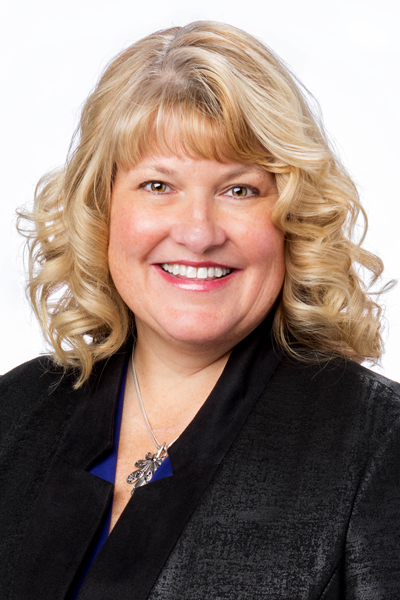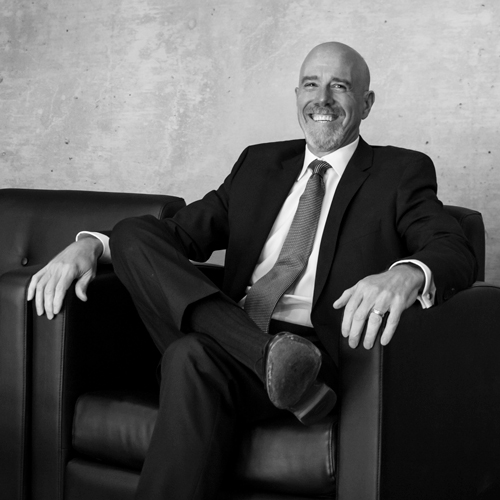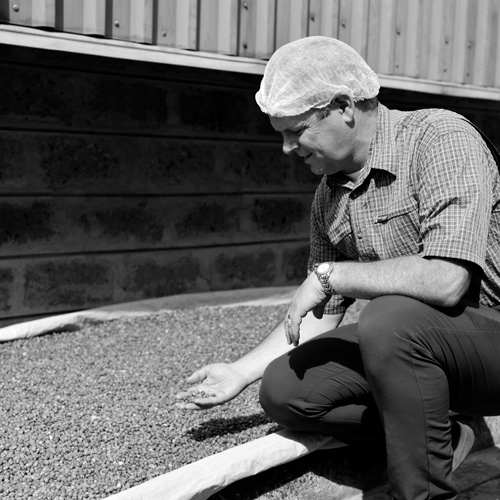
When Christine Geissler speaks with employees at international food company Kerry Inc. about how to handle changes in the fast-growing company, they are listening to an expert, in more ways than one. Geissler, the company’s chief human resources officer, had been working at Nestlé for twenty years when she got a call from a recruiter in late 2016 asking if she might consider a position at Kerry, back in her home state of Wisconsin.
At the time of the call, Geissler had hopes of next moving to picturesque Vevey, Switzerland, to work at Nestlé’s global headquarters. A world-traveler, Geissler was thrilled at the prospect of an expat assignment. Still, as she listened to the recruiter describe the job at Kerry, something shifted in her thinking.
“The call made me realize that I was looking to go to Switzerland for all the wrong reasons,” she says. “It wasn’t the right job at the right time, whereas Kerry was a growing company where I felt I could really make an impact. I had been blessed with many leadership opportunities at Nestlé, and I saw that I could bring all those experiences to Kerry in a way that would further evolve my career. In the end, that was more important to me than the chance to live in Europe.”
Now, Geissler oversees more than forty of Kerry’s manufacturing sites and has a team of one hundred people at a company leading innovation in the taste and nutrition industry. The stagnation she had felt at her former company has been replaced by constant new learning and growth.
Geissler credits her decision-making process for making the choice that was right for her. Her ability to parse what would be gained and lost in the decision to leave Nestlé was the fruit of her long experience with the concept of change management. The philosophy helps people look at change as a new experience, rather than something to be feared. She was certified in the process years ago, and she says it remains the most pragmatic tool she has ever encountered.
“People struggle with adapting to all kinds of changes,” she says. “But what we often forget is that even good change involves loss, and you have to be aware of that. It applies to everybody, personally as well as professionally.”
To illustrate this, she points to lottery winners. Along with their newfound wealth comes a myriad of changes—many unexpected—that are far from simple to negotiate. On the positive side, they can pay off their debts, buy a new house, travel, and more. But at the same time, they lose the routine of going to work every day, much of their privacy, and sometimes even their group of friends, who might feel alienated by the dramatic change in the lottery winner’s lifestyle.
At Kerry, Geissler uses change management to bring people through the many transitions that happen with a growing company. She says a large part of being able to do that is putting yourself in employees’ shoes when a change is announced. Rather than make what would amount to an aggressive sales pitch to the staff, Geissler goes in prepared to answer questions, aware that concerns about how the change will impact them personally will be on the forefront of people’s minds.
“Often when leaders announce a change, they try to sell the bells and whistles, but they don’t consider that the employees, hearing about it for the first time, are in a completely different place,” she says. “When I do that here, I recognize that I’ve already progressed through the change cycle, but the employees haven’t. People’s natural response in times of change is to feel like they’re losing a sense of safety and to immediately think about what the loss for them will be. We have to acknowledge and address those concerns.”
As she shepherds people through changes at the company, Geissler also places a special focus on women in leadership positions. She says there can exist an overriding perception from executives who are women that there is only room at the top for a few women. Based on this belief, women can tend to become excessively competitive and protective, alienating one another. Geissler wants them to think differently, migrating from a philosophy of scarcity to one of abundance.
A scarcity mind-set, Geissler says, makes some people think that, if a woman at the top had to fight to get there, she must keep fighting to ensure no one knocks her down.
“This can create scenarios where women focus on protecting their position rather than focusing on helping other women grow,” Geissler says. “I want to challenge that scarce thinking and help women understand there is plenty of room and opportunities to help everyone grow to their potential. I want to see women fight for one another to succeed as much as we expect men to take that charge.”
Just as with change management, when women listen to Geissler speak about abundant thinking, they pay attention because, as a top woman HR executive, she is speaking from experience.
And when you look underneath change management and abundant thinking, it’s clear that the core value guiding her is humanistic—a belief that people should help other people.
“If you define growing others as success, then you will become more successful yourself,” Geissler says. “There is a Chinese proverb I often cite that speaks to this: ‘If you want one year of prosperity, grow grain. If you want ten years of prosperity, grow trees. If you want one hundred years of prosperity, grow people.’”
Photo: Scott Kurty
Want more talent insights?
Get more in-depth talent strategy takeaways in our FREE 11-page Talent Strategy Report when you sign up for our biweekly Insight newsletter.

